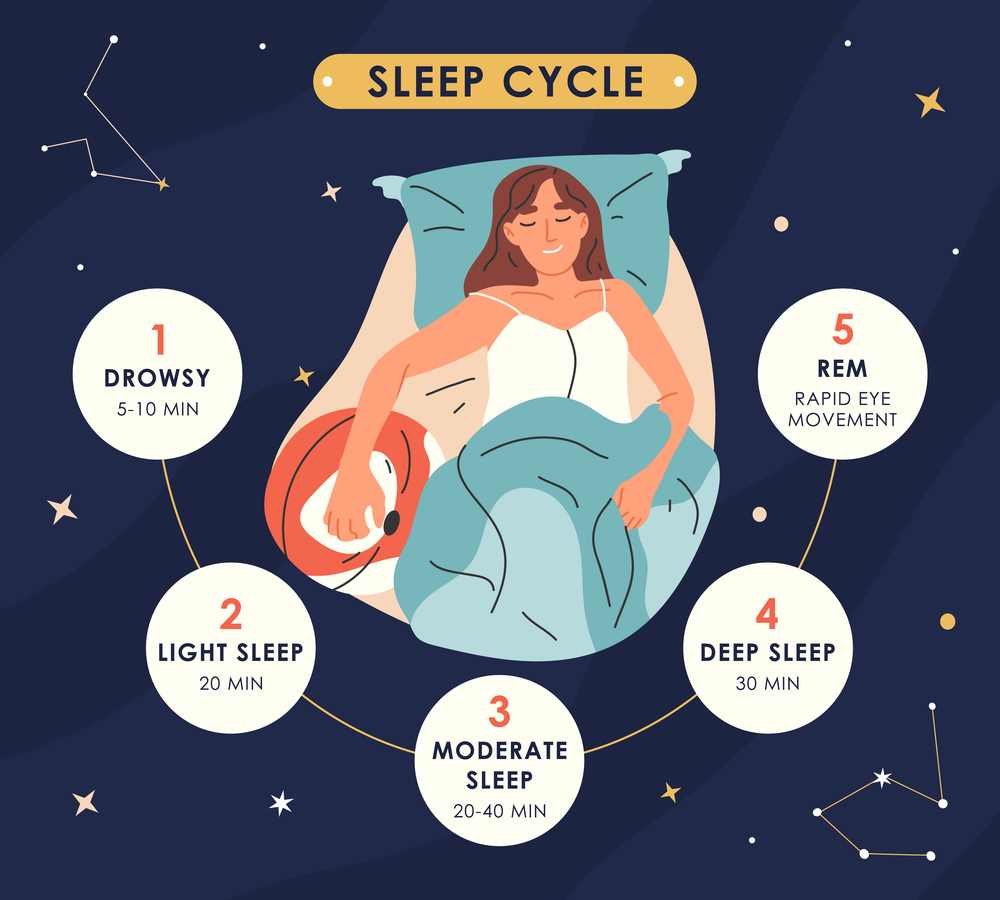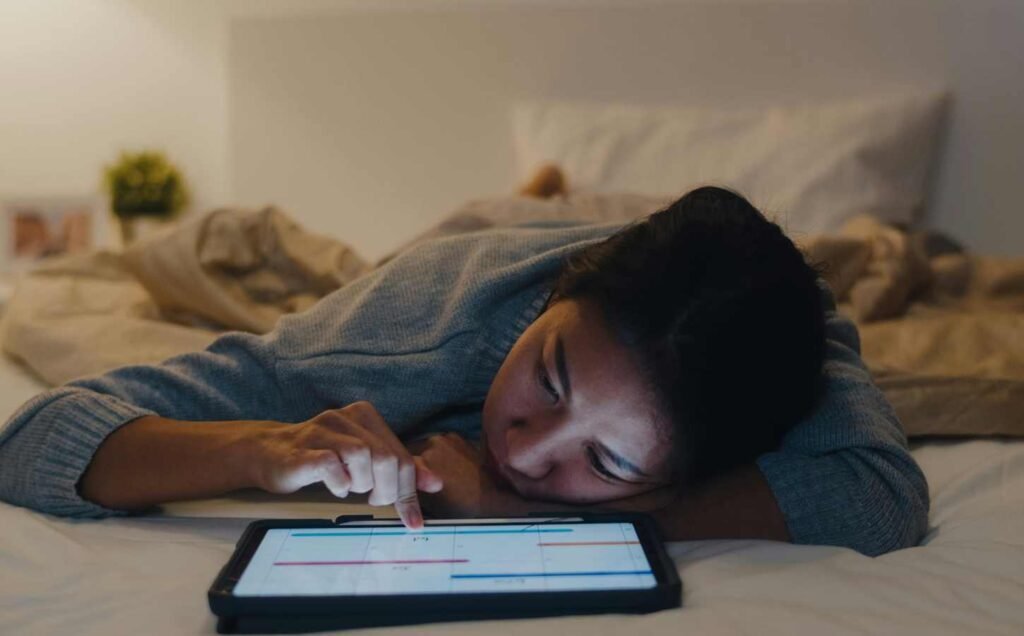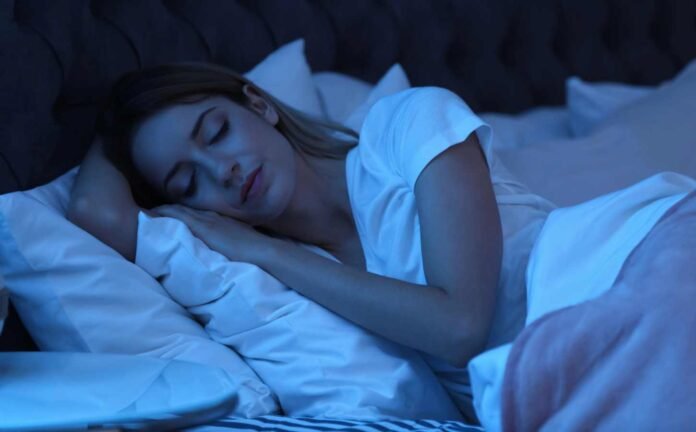Chronotherapy is a promising treatment that has garnered attention in recent years.
The approach involves adjusting the timing of medication administration to align with the patient’s circadian rhythm. This method can enhance the efficacy and safety of treatment while minimizing side effects.
The circadian rhythm is a natural, 24-hour cycle that regulates various physiological processes in the body, including sleep-wake cycles, hormone secretion, and metabolism. Disruptions to this rhythm can lead to a range of health problems, including sleep disorders, mood disorders, and metabolic disorders. Chronotherapy seeks to optimize treatment outcomes by taking advantage of the body’s natural rhythms.
While chronotherapy is still a relatively new field, early research suggests that it may be a viable option for a range of conditions, including cancer, depression, and hypertension. However, more research is needed to fully understand the safety and efficacy of this approach. As the field continues to evolve, it holds promise for improving treatment outcomes and enhancing patient well-being.

Credit: Graphic by GreenSkyStudio
Fundamentals of Chronotherapy
Circadian Rhythms and the Biological Clock
The human body has an internal timekeeping system, known as the circadian clock, which regulates various physiological processes such as sleep-wake cycles, hormone production, and metabolism. The circadian clock is located in the suprachiasmatic nucleus (SCN) of the hypothalamus, and it receives input from external cues such as light and temperature to synchronize with the 24-hour day-night cycle. Disruption of the circadian rhythm can lead to various health problems, including sleep disorders, mood disorders, and metabolic disorders.
Chronobiology and Chronopharmacology
Chronobiology is the study of biological rhythms and their regulation, while chronopharmacology is the study of the timing of drug administration to optimize therapeutic outcomes. Chronotherapy is a treatment strategy that involves timing medications or other interventions according to the circadian rhythm. Chronotherapy has been shown to improve efficacy and reduce side effects of various medications, including chemotherapy, antidepressants, and anti-inflammatory drugs.
Principles of Timing in Treatment
The principles of timing in chronotherapy involve identifying the optimal time of day to administer a medication or intervention based on the circadian rhythm of the patient. The timing of treatment can depend on various factors such as the type of medication, the disease being treated, and the individual’s circadian rhythm. For example, some medications may be more effective when taken in the morning, while others may be more effective when taken in the evening. Chronotherapy can also involve adjusting the timing of light exposure, meal times, and physical activity to align with the circadian rhythm.
In conclusion, understanding the fundamentals of chronotherapy is essential for optimizing treatment outcomes and improving patient health. By considering the circadian rhythm and principles of timing, healthcare professionals can tailor treatments to the individual’s biological clock and achieve better therapeutic outcomes.
Chronotherapy and Sleep
Chronotherapy is a treatment that involves the manipulation of the sleep-wake cycle to improve sleep quality and treat sleep disorders. This therapy has been found to be effective in managing various sleep disorders, including insomnia, delayed sleep phase disorder, and advanced sleep phase syndrome.
Sleep Disorders and Chronotherapy
Chronotherapy is often used to treat sleep disorders such as insomnia, a condition characterized by difficulty falling asleep or staying asleep. Insomnia is often caused by stress, anxiety, or depression. Chronotherapy involves gradually delaying the time of going to bed until the desired sleep time is achieved. This treatment has been found to be effective in improving sleep quality and duration.
Melatonin and Sleep Regulation
Melatonin is a hormone that regulates the sleep-wake cycle. It is produced by the pineal gland in the brain and is released in response to darkness. Melatonin levels are highest at night and lowest during the day. Chronotherapy involves the use of melatonin supplements to regulate the sleep-wake cycle. Melatonin supplements are often used to treat sleep disorders such as insomnia, delayed sleep phase disorder, and jet lag.
Sleep Phase Management
Chronotherapy involves the manipulation of the sleep-wake cycle to manage sleep phases. Sleep phase management involves the use of light therapy, melatonin supplements, and behavioral changes to regulate the sleep-wake cycle. This treatment has been found to be effective in managing sleep disorders such as delayed sleep phase disorder and advanced sleep phase syndrome.
In conclusion, chronotherapy is an effective treatment for managing various sleep disorders. This therapy involves the manipulation of the sleep-wake cycle using various techniques such as light therapy, melatonin supplements, and behavioral changes. Chronotherapy has been found to be effective in improving sleep quality and duration, and regulating the sleep-wake cycle.
Chronotherapy in Mental Health
Depression and Light Therapy
Chronotherapy is a promising treatment for depression, a common psychiatric disorder characterized by a persistent feeling of sadness and loss of interest in activities. Light therapy is a type of chronotherapy that involves exposure to bright light to regulate the circadian rhythm of individuals with depression. This therapy has been found to be effective in improving depressive symptoms, particularly in individuals with seasonal affective disorder (SAD).
Studies have shown that light therapy can be as effective as antidepressant medications in treating major depression. The therapy involves sitting in front of a lightbox for a specified amount of time each day. The lightbox emits a bright light that mimics natural outdoor light and helps regulate the body’s internal clock.
Bipolar Disorder and Sleep Patterns
Bipolar disorder is a mental health condition characterized by extreme mood swings, including manic episodes and depressive episodes. Sleep disturbances are common in individuals with bipolar disorder, and sleep deprivation can trigger manic episodes. Wake therapy is a type of chronotherapy that involves sleep deprivation followed by a period of sleep.
Wake therapy has been found to be effective in treating bipolar depression. The therapy involves staying awake for a full night and then sleeping for a few hours the following morning. This therapy has been found to improve mood and reduce depressive symptoms in individuals with bipolar disorder.
Chronotherapy for Mood Disorders
Triple chronotherapy is a type of chronotherapy that combines sleep deprivation, light therapy, and sleep phase advance. This therapy has been found to be effective in treating mood disorders, particularly in individuals with treatment-resistant depression.
Triple chronotherapy involves staying awake for a full night, followed by exposure to bright light in the morning and a phase advance of the sleep schedule. This therapy has been found to improve mood and reduce depressive symptoms in individuals with mood disorders.
In conclusion, chronotherapy is a promising treatment for individuals with psychiatric disorders, particularly depression and bipolar disorder. Light therapy, wake therapy, and triple chronotherapy are effective treatments that can improve mood and reduce depressive symptoms. Further research is needed to explore the long-term effects of these therapies and to determine their optimal use in clinical practice.
Chronotherapy in Cancer Treatment
Circadian Regulation and Cancer Therapy
Chronotherapy is a treatment approach that involves administering drugs at specific times of the day to optimize their therapeutic effect while minimizing toxicities. The rationale behind this approach is that many physiological processes, including drug metabolism and elimination, exhibit circadian rhythms that are regulated by the body’s internal clock. Disruption of this clock, as seen in shift workers or individuals with sleep disorders, has been associated with an increased risk of cancer.
Several studies have shown that the timing of chemotherapy can impact its efficacy and toxicity. For example, administering chemotherapy in the morning, when the body’s natural defenses are at their peak, has been shown to improve survival rates in patients with colorectal cancer. Similarly, administering immunotherapy at night, when the immune system is most active, has been shown to enhance its therapeutic effect in patients with breast cancer.
Timing of Chemotherapy and Immunotherapy
Chronotherapy has also been shown to reduce drug resistance and enhance the therapeutic effect of chemotherapy and immunotherapy. For example, administering chemotherapy at specific times of the day can synchronize the cell cycle of tumor cells, making them more vulnerable to the drug. Similarly, administering immunotherapy at night can enhance the activity of natural killer cells, which are responsible for killing cancer cells.
However, the optimal timing of chemotherapy and immunotherapy may vary depending on the type of cancer and the specific drugs used. For example, some drugs may have a longer half-life or may be more toxic at certain times of the day. Therefore, it is important to individualize the timing of treatment based on the patient’s circadian rhythm and the characteristics of the tumor.
Chronotherapy and Survival Rates
Several clinical trials have evaluated the impact of chronotherapy on survival rates in cancer patients. For example, a randomized controlled trial in patients with metastatic colorectal cancer showed that administering chemotherapy in the morning improved survival rates by 47% compared to administering it in the evening. Similarly, a meta-analysis of clinical trials in patients with breast cancer showed that administering chemotherapy at night improved survival rates by 34% compared to administering it during the day.
In conclusion, chronotherapy is a promising approach to cancer treatment that takes advantage of the body’s natural rhythms to optimize the therapeutic effect of drugs while minimizing toxicities. However, further research is needed to determine the optimal timing of chemotherapy and immunotherapy for different types of cancer and to evaluate the long-term impact of chronotherapy on survival rates.
Chronotherapy and Lifestyle
Chronotherapy is a treatment that involves the timing of medications, light exposure, and other therapies to align with a person’s circadian rhythms. It has been shown to be effective in treating a variety of conditions, including sleep disorders, depression, and bipolar disorder. In addition to medication and light therapy, lifestyle changes can also play a role in chronotherapy.
Exercise and Circadian Rhythms
Regular exercise has been shown to improve sleep quality and can help regulate circadian rhythms. Exercise has been found to increase the production of melatonin, a hormone that helps regulate sleep-wake cycles. It is recommended that individuals engage in at least 30 minutes of moderate-intensity exercise most days of the week. It is important to note that exercising too close to bedtime can have a negative impact on sleep quality.
Diet, Metabolism, and Biological Rhythms
Research has shown that diet and metabolism can have an impact on circadian rhythms. It is recommended that individuals eat a balanced diet and avoid consuming large meals close to bedtime. Additionally, it is important to avoid caffeine and alcohol close to bedtime as they can disrupt sleep.
Light Exposure and Daily Routines
Light exposure plays a crucial role in regulating circadian rhythms. Exposure to bright light in the morning can help reset the body’s internal clock and improve sleep-wake cycles. On the other hand, exposure to bright light in the evening can disrupt sleep. It is recommended that individuals establish a regular sleep routine and avoid exposure to bright light close to bedtime. The use of timed light exposure, such as light therapy, can also be an effective treatment for sleep disorders and other conditions.
Overall, lifestyle changes such as exercise, diet, and light exposure can play a role in chronotherapy and can help regulate circadian rhythms. It is important to consult with a healthcare professional before making any significant changes to your lifestyle or treatment plan.
Chronotherapy in Special Populations
Chronotherapy in Adolescents and Children
Chronotherapy has been found to be an effective treatment for sleep disorders in adolescents and children. Studies have shown that delaying bedtime by a few hours can help shift the circadian rhythm of adolescents and children to a more desirable time, thus improving their sleep quality and duration.
In addition, chronotherapy has been found to be effective in treating delayed sleep phase disorder (DSPD) in adolescents and children. DSPD is a circadian rhythm disorder characterized by a delay in the timing of sleep onset and offset. Chronotherapy involves delaying the bedtime of the patient by a few hours each day until the desired sleep time is achieved.
Shift Work and Circadian Disruption
Shift work can disrupt the circadian rhythm and lead to sleep disorders. Chronotherapy has been found to be an effective treatment for shift workers with sleep disorders. Chronotherapy involves shifting the sleep-wake cycle of the shift worker gradually over a period of days until it aligns with their work schedule.
Studies have shown that chronotherapy can improve sleep quality and duration, reduce sleepiness during work hours, and improve overall performance in shift workers.
Elderly Patients and Sleep-Wake Physiology
Elderly patients often experience changes in their sleep-wake physiology, including a shift in the timing of their circadian rhythm. Chronotherapy has been found to be an effective treatment for sleep disorders in elderly patients.
Chronotherapy involves gradually shifting the sleep-wake cycle of elderly patients over a period of days until it aligns with their desired sleep schedule. Studies have shown that chronotherapy can improve sleep quality and duration, reduce daytime sleepiness, and improve overall quality of life in elderly patients with sleep disorders.
In conclusion, chronotherapy is an effective treatment for sleep disorders in special populations, including adolescents and children, shift workers, and elderly patients. By gradually shifting the sleep-wake cycle of these patients, chronotherapy can improve their sleep quality and duration, reduce daytime sleepiness, and improve overall performance and quality of life.
Pharmacological Aspects of Chronotherapy
Medication Timing and Effectiveness
The timing of medication administration can significantly impact its efficacy. Chronotherapy is a treatment approach that aims to optimize drug timing based on the circadian rhythm of the body. For instance, administering medication during the biological peak of the disease can enhance its effectiveness. Conversely, administering medication during the trough of the disease can reduce its efficacy or increase the risk of adverse effects.
Chronobiotic Medications
Chronobiotics are medications that can alter the circadian rhythm of the body. These medications can be used to treat disorders that are related to circadian rhythm disruptions, such as sleep disorders, depression, and bipolar disorder. One example of a chronobiotic medication is melatonin, which is a hormone that regulates the sleep-wake cycle. Melatonin supplements can be used to treat insomnia and other sleep disorders.
Adverse Effects and Medication Safety
Chronotherapy can also impact the safety of medication use. Administering medication during the wrong time of day can increase the risk of adverse effects. For instance, taking antidepressants during the evening can disrupt sleep and increase the risk of daytime sedation. Additionally, some medications can have adverse effects on the circadian rhythm itself, such as lithium, which can cause circadian rhythm disruptions and sleep disturbances.
Overall, pharmacological aspects of chronotherapy are an important consideration for healthcare providers when treating patients with various disorders. By optimizing medication timing, using chronobiotic medications, and considering medication safety, healthcare providers can enhance the efficacy of treatment while minimizing the risk of adverse effects.
Research and Future Directions
Innovations in Chronotherapy Research
As the field of chronotherapy continues to grow, researchers are exploring new and innovative ways to optimize treatment approaches. One promising area of research involves the use of metabolomics to better understand how different individuals metabolize drugs and how this can impact the effectiveness of chronotherapy. Additionally, single-sample gene expression studies are being used to identify biomarkers that can predict individual responses to chronotherapy, allowing for personalized treatment plans.
Genetic Insights and Chronotherapy
Advancements in our understanding of the genetic underpinnings of circadian rhythms have led to new insights into chronotherapy. By studying the human phase response to light and other environmental cues, researchers are gaining a better understanding of how to optimize chronotherapy for different individuals. Additionally, studies of clock genes such as BMAL1 are shedding light on the mechanisms behind circadian rhythm disruption in diseases such as Alzheimer’s and Parkinson’s.
Emerging Technologies and Techniques
New technologies and techniques are also being developed to improve the efficacy of chronotherapy. For instance, animal studies are being used to explore the impact of chronotherapy on neurodegeneration (ND) progression and ROS levels. In addition, the American Academy of Sleep Medicine has developed guidelines for the use of chronotherapy in the treatment of jet lag and other sleep disorders. Cardiovascular events are also being studied to determine the potential impact of chronotherapy on these conditions.
Overall, the future of chronotherapy research looks promising as researchers continue to explore new avenues for optimizing treatment approaches. By leveraging cutting-edge technologies and techniques and gaining a better understanding of the genetic and molecular mechanisms underlying circadian rhythms, researchers are poised to make significant strides in improving the efficacy of chronotherapy for a range of conditions.
Frequently Asked Questions
How does chronotherapy improve the efficacy of pharmacological treatments?
Chronotherapy involves administering medication at specific times of the day or night to align with the body’s natural circadian rhythms. This approach can improve the efficacy of pharmacological treatments by enhancing drug absorption, reducing side effects, and optimizing the timing of drug action. Chronotherapy has been shown to be particularly effective for treating sleep disorders, hypertension, and depression.
What are the steps involved in implementing chronotherapy for sleep disorders?
The first step in implementing chronotherapy for sleep disorders is to identify the patient’s circadian rhythm. This can be done through a combination of clinical observation, actigraphy, and polysomnography. Once the circadian rhythm has been established, the patient’s sleep schedule is gradually adjusted to align with their natural rhythm. This involves gradually delaying or advancing bedtime until the desired sleep schedule is achieved.
Which drugs are commonly used in chronotherapy, and what are their schedules?
The drugs commonly used in chronotherapy include corticosteroids, nonsteroidal anti-inflammatory drugs (NSAIDs), and anti-cancer agents. The timing and schedule of drug administration depend on the specific drug and the condition being treated. For example, corticosteroids are typically administered in the morning to mimic the body’s natural cortisol rhythm, while NSAIDs are often given in the evening to coincide with the body’s peak inflammatory response.
What are the benefits of using chronotherapy to manage hypertension?
Chronotherapy can help manage hypertension by optimizing the timing of medication administration to coincide with the body’s natural blood pressure rhythm. This approach can reduce the risk of side effects and improve treatment efficacy. Chronotherapy has been shown to be particularly effective for treating nocturnal hypertension, a common complication of hypertension.
How is chronotherapy applied in the treatment of depression?
Chronotherapy can be used to treat depression by gradually shifting the patient’s sleep-wake cycle to align with their natural circadian rhythm. This approach is known as “wake therapy” and involves keeping the patient awake for a period of time during the night followed by a phase advance of their sleep schedule. This approach has been shown to be effective for treating both acute and chronic depression.
Can you describe the underlying mechanism that makes chronotherapy effective?
Chronotherapy is effective because it aligns medication administration with the body’s natural circadian rhythms. This approach can optimize drug absorption, reduce side effects, and improve treatment efficacy. The circadian rhythm is regulated by a complex network of genes and proteins that control the timing of physiological processes such as sleep, metabolism, and hormone secretion. By aligning medication administration with the circadian rhythm, chronotherapy can enhance the body’s natural healing processes and improve treatment outcomes.
MaryRuth Organics Sleep Gummies Without Melatonin Review: Do They Work?

These gummies are designed to promote relaxation and support sleep quality for adults. Unlike many other sleep aids, they don’t contain melatonin, so you won’t wake up feeling groggy or drowsy.
Continue reading: MaryRuth Organics Sleep Gummies Without Melatonin
How Your Diet Impacts Sleep Quality: Understanding the Connection

This article explores the significant impact that your dietary choices have on your sleep quality and offers insights into making smarter food decisions for a restful night.
Continue reading: How Your Diet Impacts Sleep Quality
How Blue Light Affects Sleep: Tips for a Restful Night in Our Tech-Driven World

This article explores how blue light affects sleep and sleep quality, offering actionable, tech-friendly bedtime tips to harmonize your digital life with your sleep needs.
Continue reading: How Blue Light Affects Sleep




